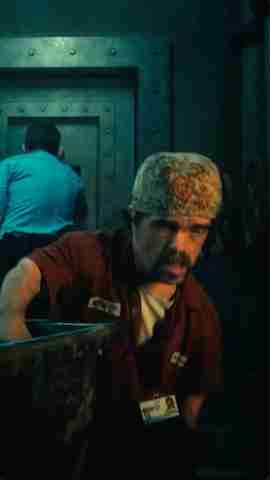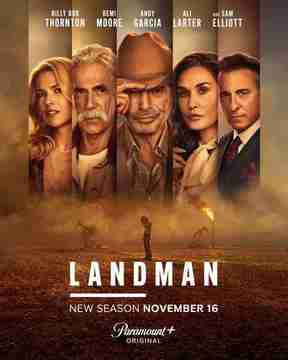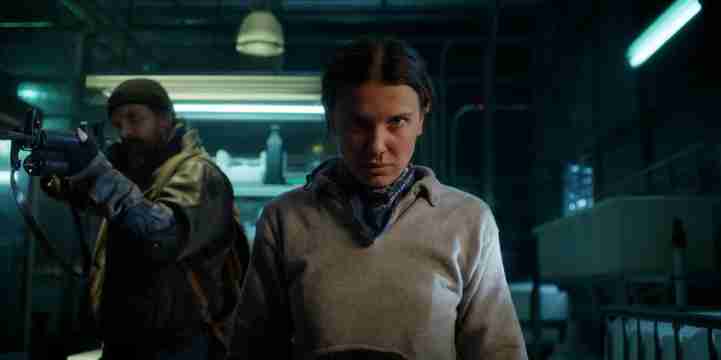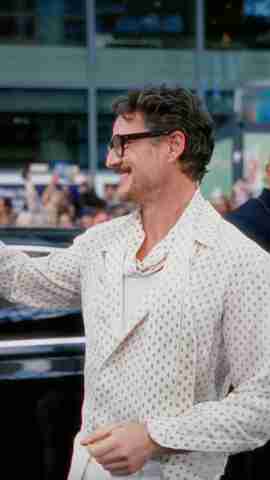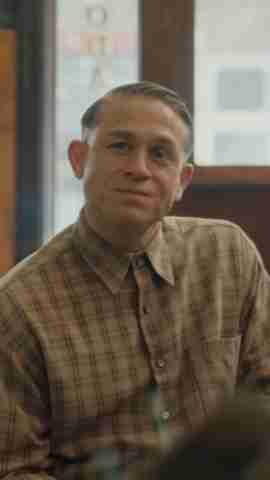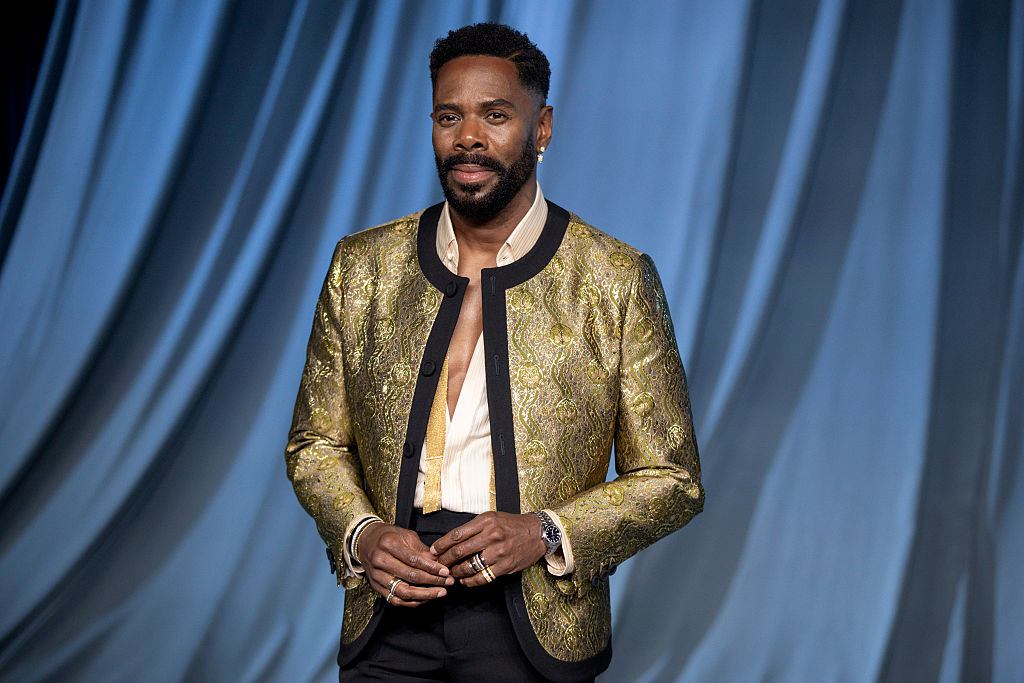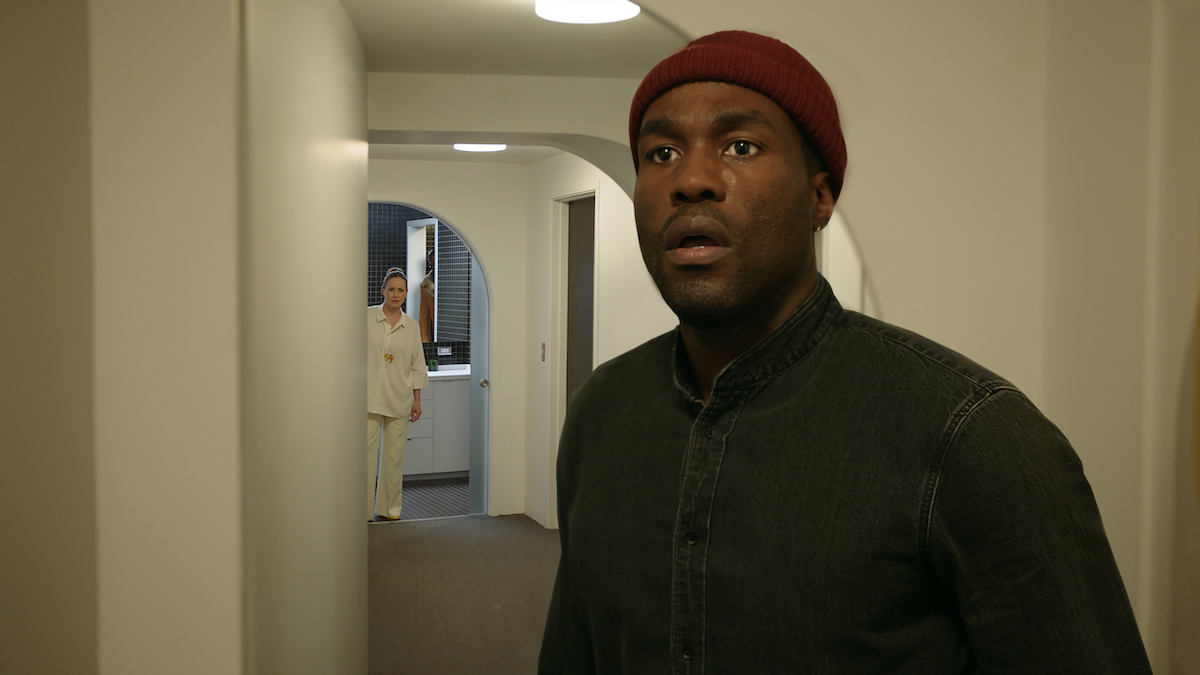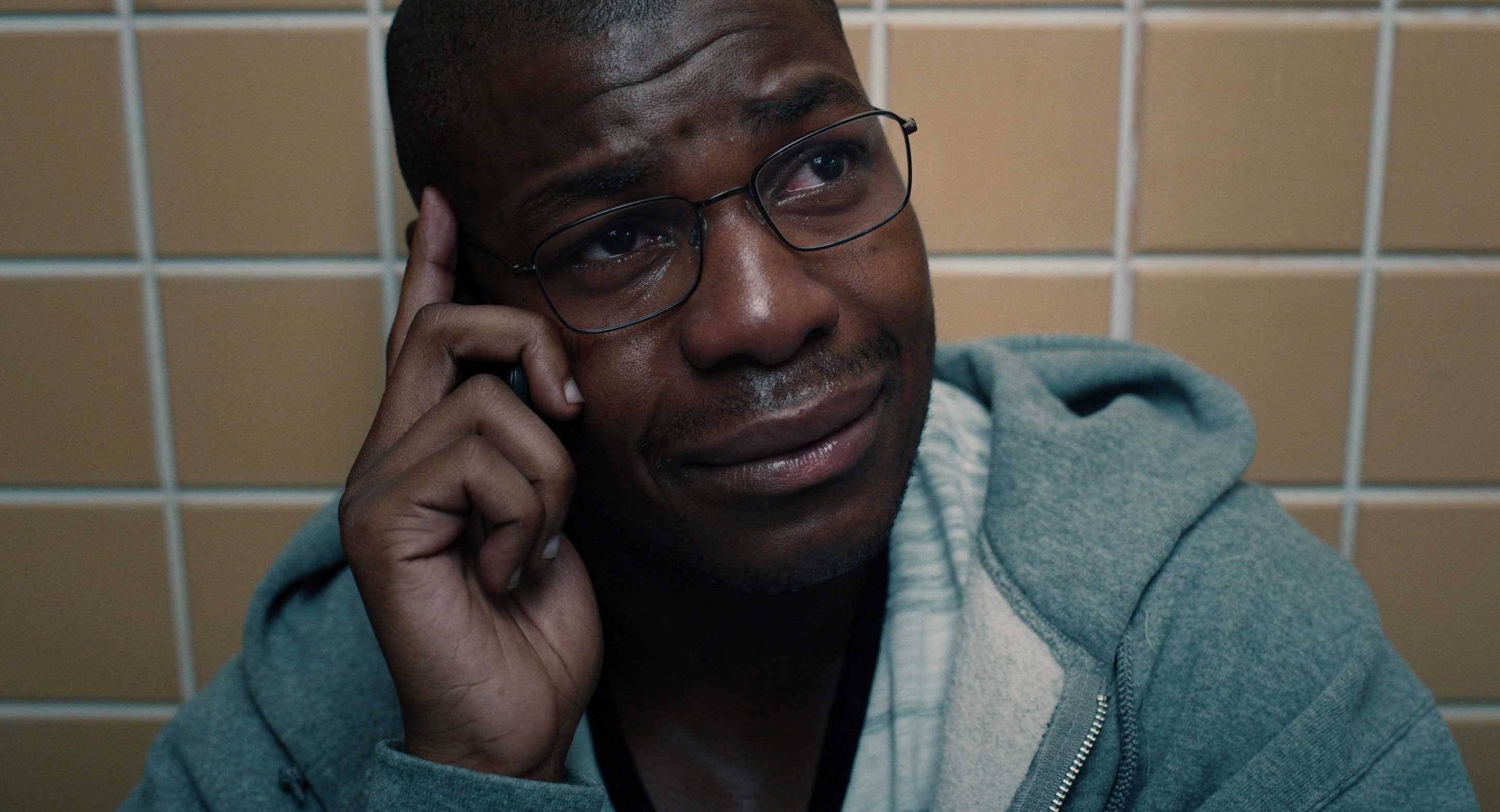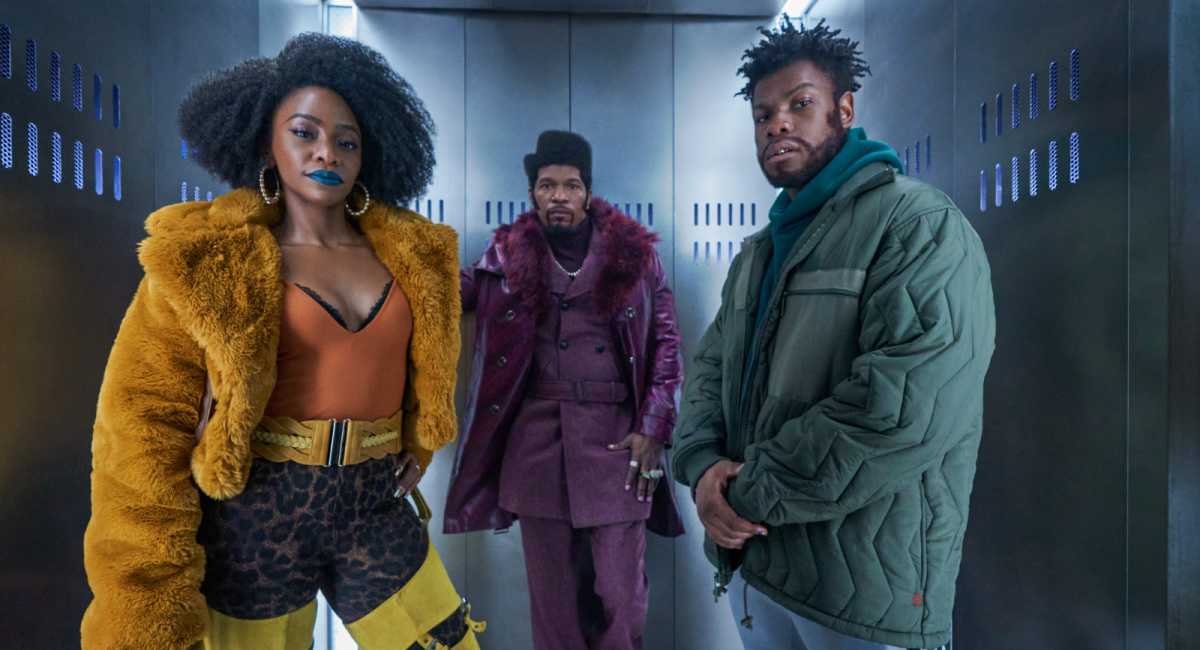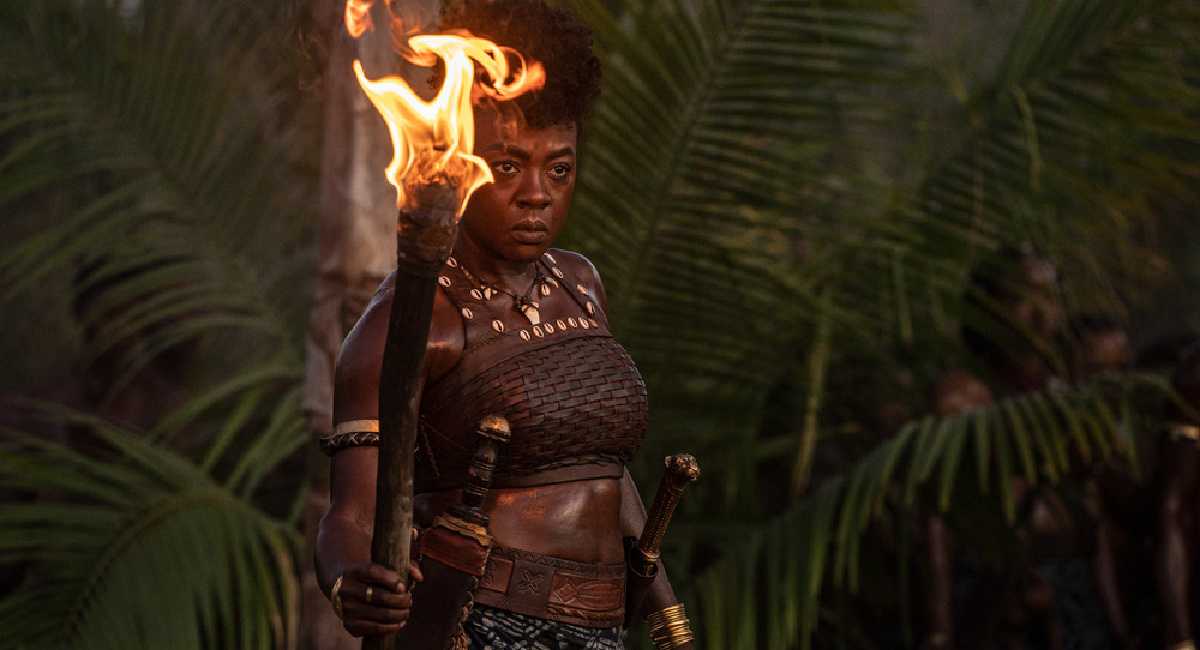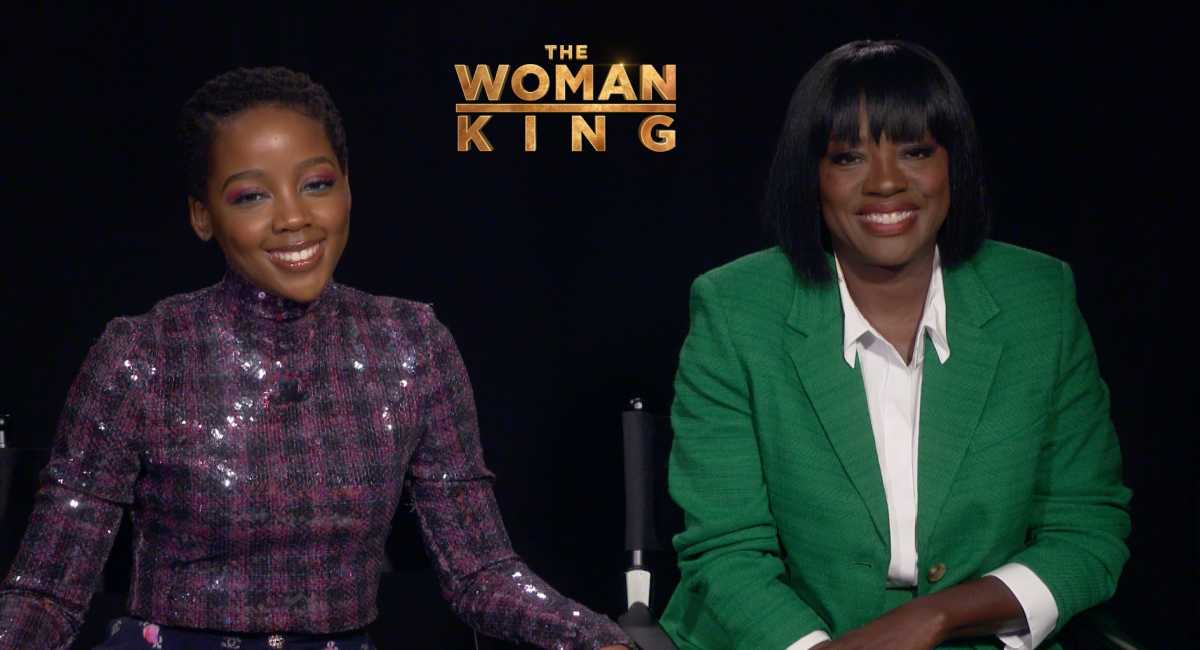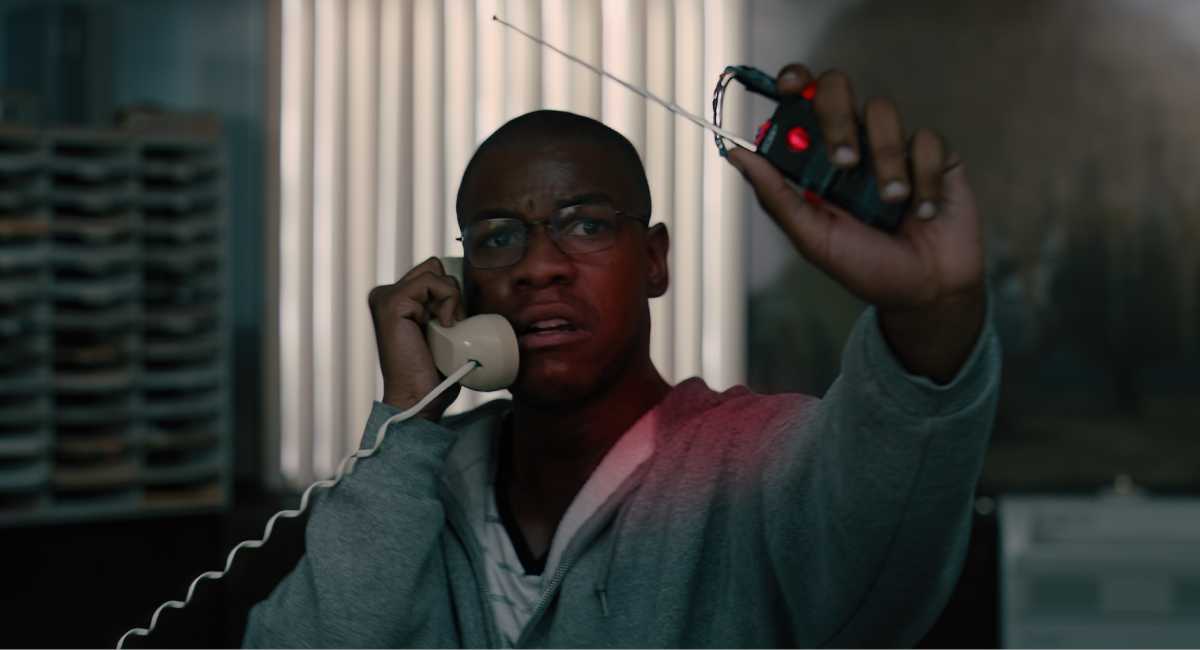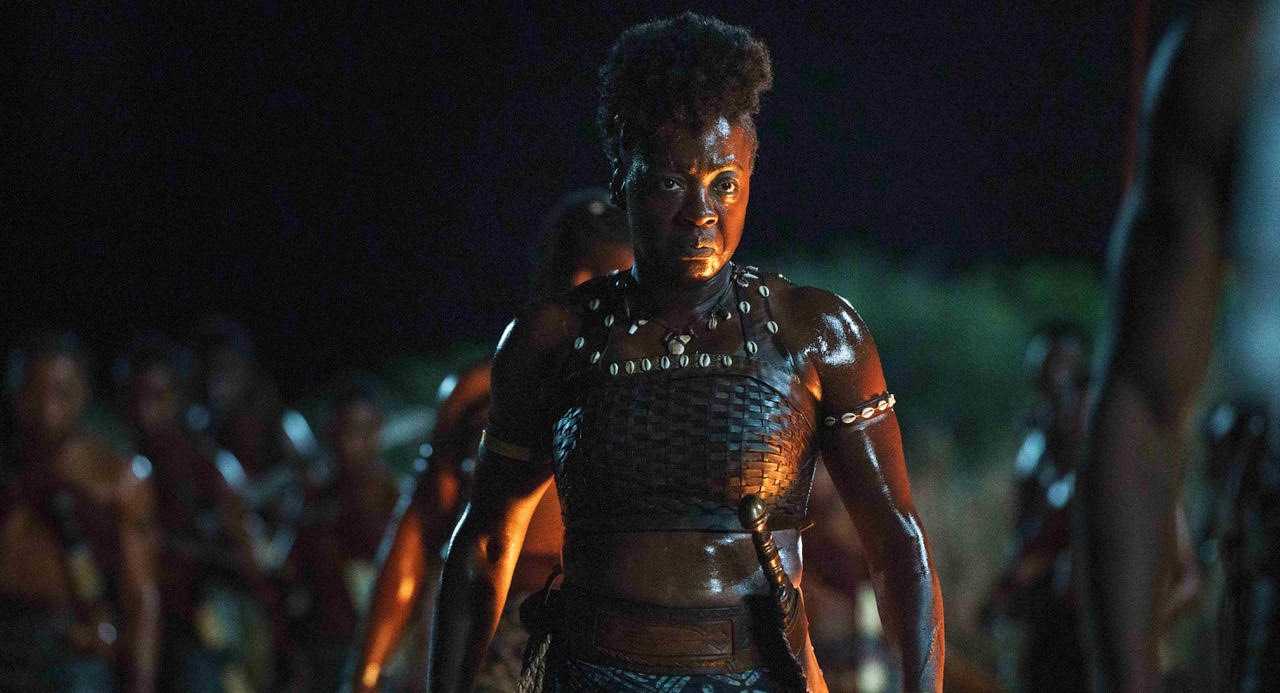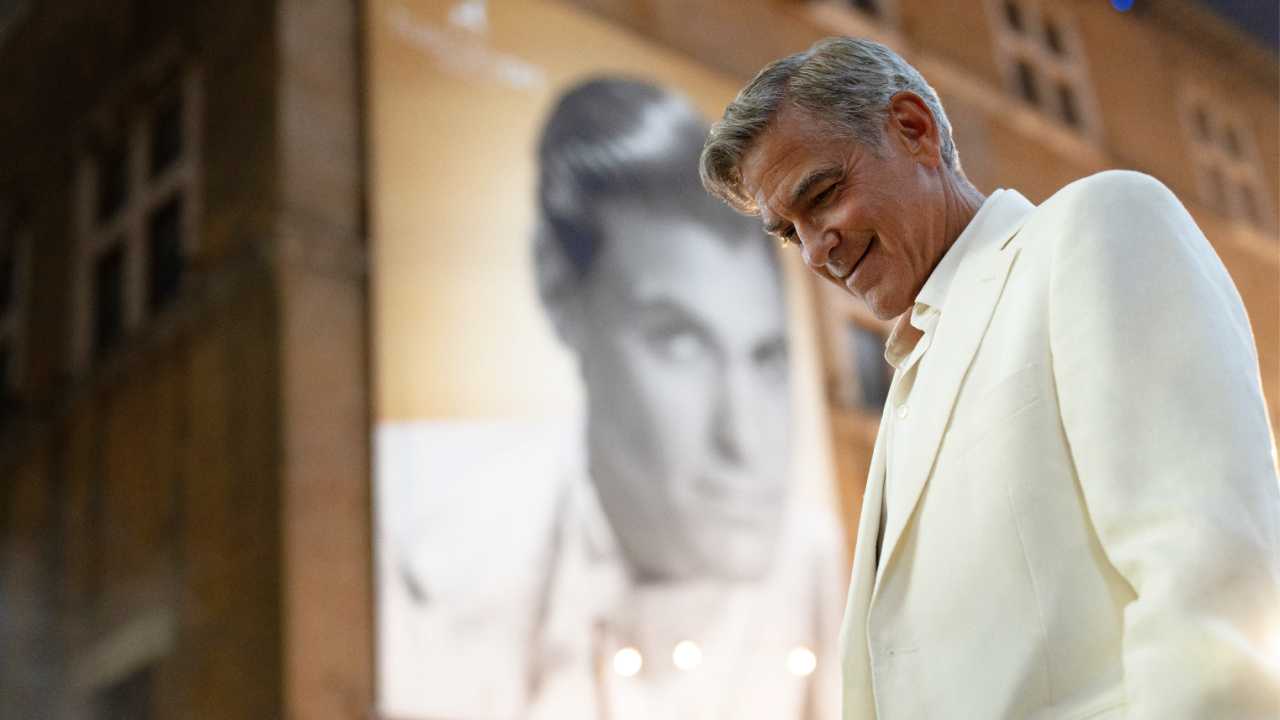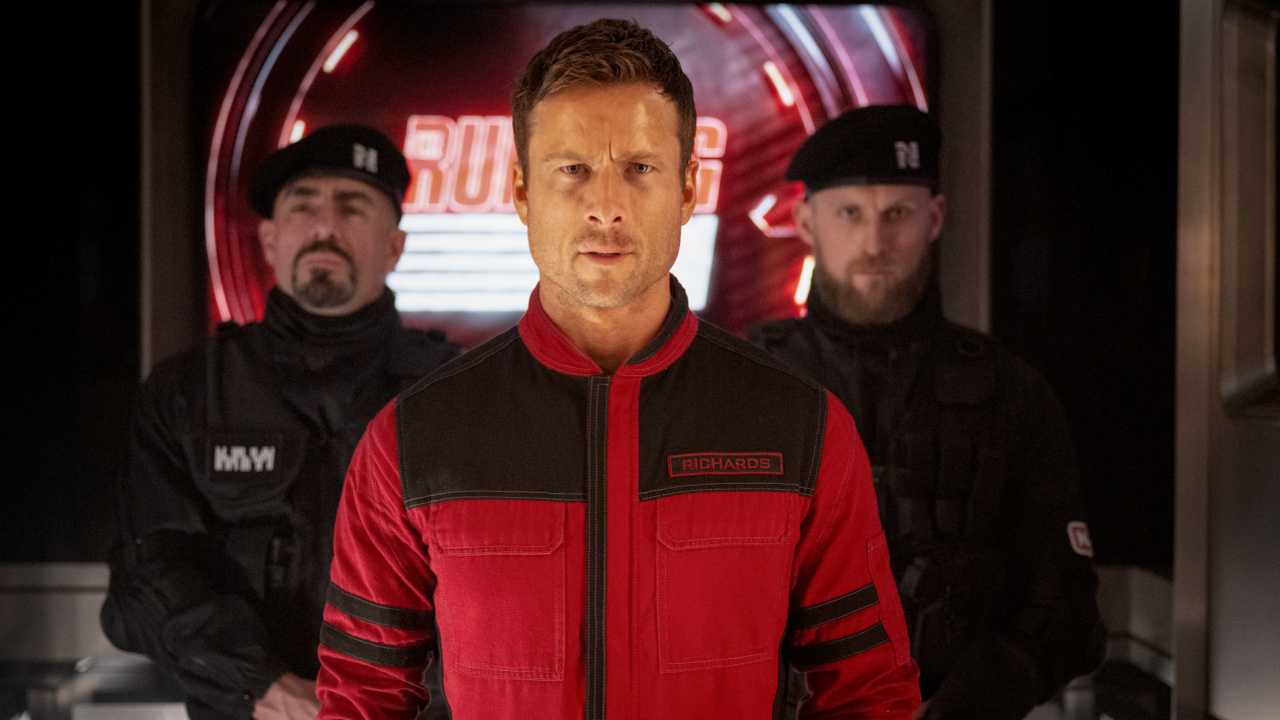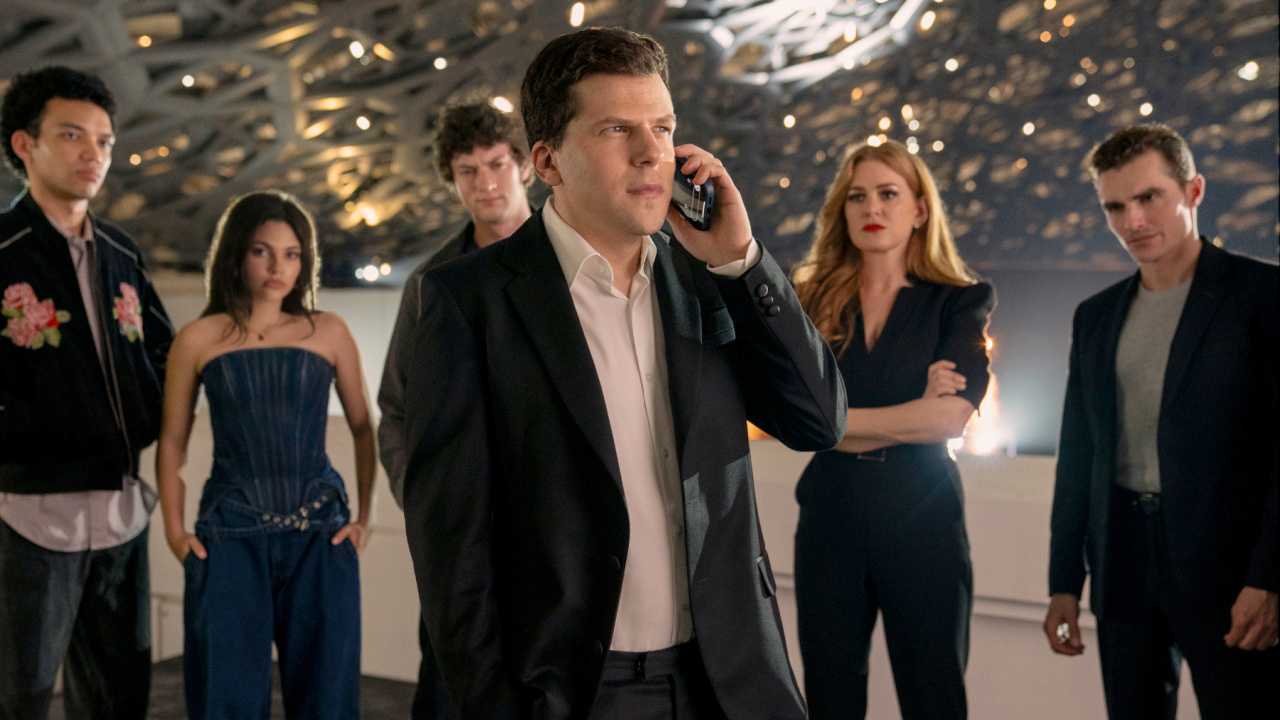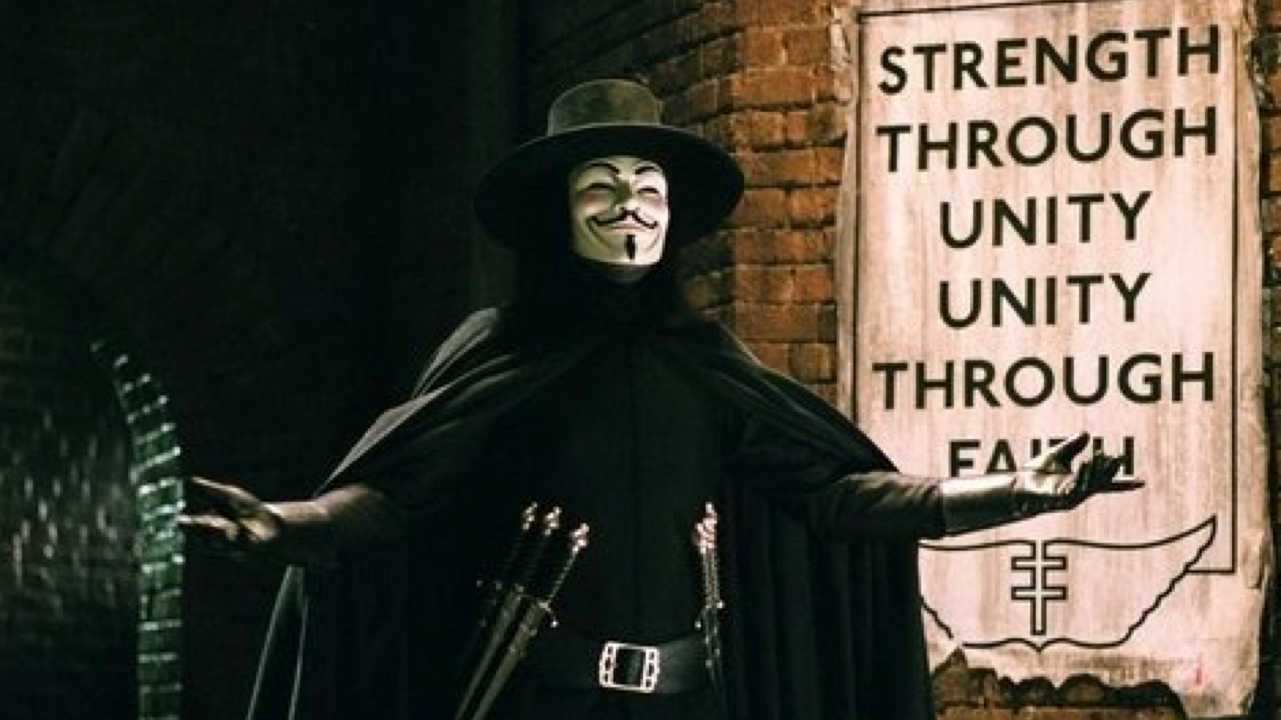'Naked Singularity' writer/director Chase Palmer and actor Linda Lavin talk about the courtroom thriller
Lavin talks about playing an acerbic judge opposite John Boyega, and Palmer discusses adapting the novel and shooting in NYC.
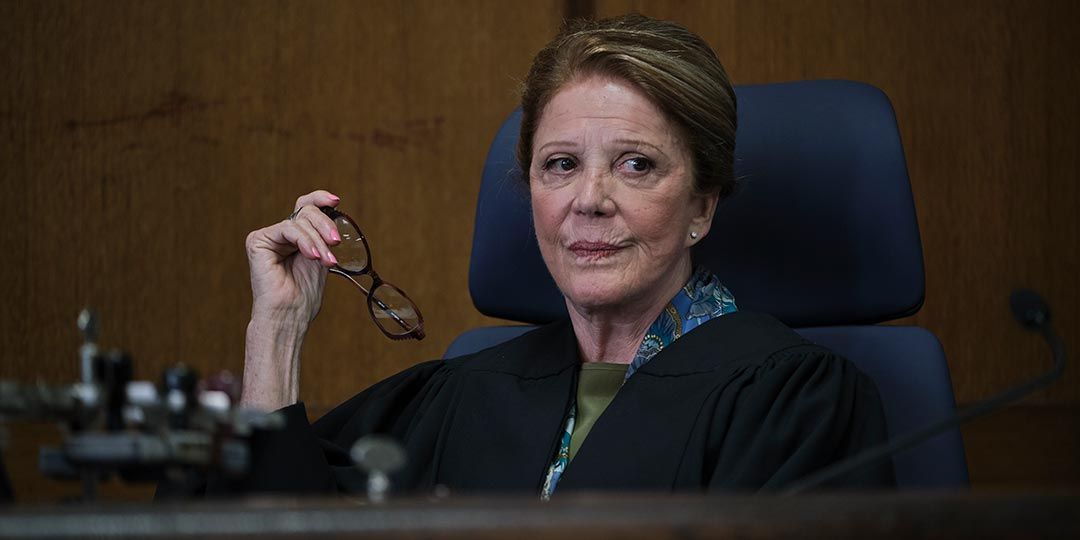
Linda Lavin in 'Naked Singularity'
'Naked Singularity' tells the story of a public defender named Casi (John Boyega) who seems to nearing the end of his rope, until an opportunity comes his way that he may not be able to pass up. The film also stars Olivia Cooke, Tim Blake Nelson, Bill Skarsgård, and Ed Skrein, with Linda Lavin playing the no-nonsense Judge Cymbeline. The movie was written and directed by Chase Palmer, and he and Lavin talked to us about the movie.
First, Linda Lavin talks about her extremely acerbic judge.
Moviefone: You're the first person I've ever seen that make drinking from a water bottle look menacing.
Linda Lavin: That was a wonderful moment! I'd forgotten about that. We shot this film almost two years ago and when I watched it, I thought, "Oh my God, I forgot that one!" That was funny. I have to credit the director. It's the director, Chase Palmer, a great writer and director. And that was so much fun to do. Thank you. And working with John Boyega. So wonderful. So wonderful.
MF: What was interesting about this judge character for you?
Lavin: What was interesting was playing a woman of such intelligence and power who was not cowed by this man who was so beaten down by the system, such a terribly difficult system, the criminal justice system, and being so arrogant with it. It's so full of hubris, and thinking he could get away with murder with me. And it just was so much fun to sit so far above him. So high above the crowd, and let him know he wasn't going to get away with that stuff with me. It was a lot of fun, and it was very meaningful. We got to shoot it on at 60 Center Street, which is the big courthouse in New York City. And I sat at a desk that judges sit at every day and hand out judgements and try to make sense out of a system that's so convoluted and so compromised. It was a wonderful opportunity. I love the movie. I think it's a great thriller, and he's a great actor and a wonderful human being, very different from the character.
MF: John Boyega has such a righteous indignation as Casi. And what tools do you have to use as an actor to play a judge that’s having none of that?
Lavin: Well, I just had to listen and make a commitment to her dedication to the truth. And we've all been in a position where somebody doesn't hear us or doesn't want to know what we think or is trying to, as you say, righteously defend a situation that is indefensible. And she said that to him, "Oh, I'm glad we're speaking, frankly." She says, "Now we're speaking frankly." He tries to get away with it with saying, "It's a joke." And she says, "So now we're being comical." She hears everything. And the only tool I had to do was to listen, learn the lines, and show up, because it's not a difficult thing. When you hear something coming at you that threatens your sensibilities or your intelligence, when someone's trying to get away with something. Anybody who's raised children knows that one.
MF: I'm glad you brought that up because it's as if the judge sometimes has these moments, similar to a parent, which is, "You really think haven't heard this one before?"
Lavin: (Laughing) Right. Who do you think you're talking to? Exactly.
MF: What was the time commitment like for you?
Lavin: I think it was a two-day shoot. And so we did all my scenes together in that two-day period downtown, and this is the same courthouse that they use for Law and Order. But I'll tell you, my dressing room was a closet. It was a small office that had a locker on it, in it, excuse me, a locker with things, pasted all over it, post-its. And this was my dressing room. And it was in the courthouse. There were no dressing rooms and had a bad coffee machine that was so stained from years and years of never being washed. And I thought, "Wow, this makes ‘Law and Order’ look glamorous."
This was really, really shabby. And then I got to walk into the courtroom dressed as this judge and got to speak her intelligence and her utterance of the law. The law is the point, not what you think and not what you feel. And we know that anybody who's watched Judge Judy as I do as often as possible, knows that when she says, "I don't care. It doesn't matter that he hurt your feelings. I don't care what you were wearing that day. I care about the law and what you're legally responsible for or what you were legally the victim of." So I loved pretending to be that person, that lawyer, that judge.
MF: I know that costumes could really help actors get into a character. I have to imagine the moment you put on that robe, it's "Okay, Judge Lavin is here and you guys are all in trouble."
Lavin: Absolutely! So as soon as I walked in that courtroom, I felt that power. Absolutely. And it was given to me. And that was so respectful and so thoughtful. And there's something about sitting higher than anybody else. The physical ramification of that deal is more than symbolic.
Writer/director Chase Palmer talks about adapting the novel and shooting on the streets of NYC.
Moviefone: Could you talk a little bit about what it takes to adapt this sprawling, philosophical novel?
Chase Palmer: Yeah. That's correct. I think with these big books, the thing that I look for the most in an adaptation is, what's the spirit of the book, because you can't, do everything. You can't do all the plot, all the character. I try to pick books that I connect to the spirit of it, the essence of it, and then go from there. In the case of Naked Singularity, Sergio De La Pava, the author, is a public defender for 20 years, and he's married to a public defender for 20 years. He's a Manhattan-based defender. His wife, Susanna, is in Brooklyn.
What I loved about the book was it was just so well-observed. It was, obviously, coming from somebody who was on the inside of the whole system, but more importantly, he had just a very distinct voice. It was outraged. It was absurdist. It was darkly comic. There were some philosophical detours. It was just wild. There was a bit of sort of genre mashup going on. I wanted to kind of capture that way in to telling a story about this sort of young public defender and his experience sort of butting up against the dysfunctional justice system. It just felt like a new way in to kind of explore that idea.
MF: I'm glad you talked about the outrage, because I was going to ask, is the book and the topics of the situations it covers as infuriating as we see the movie gets, especially early on, and you see some of the stuff that happens to Casi's clients?
Palmer: Yeah, very much. I mean, the book is very long, so he has a lot more clients, and so you really get to see sort of the diversity of injustice. It often is very petty. I think what we wanted to do in our film is to show that even these sorts of small infractions can snowball into something much larger that can affect people's lives. These petty injustices are some of the easiest things for the system to try to prevent, and we still have a hard time preventing them. Yes, it was even more infuriating. In talking to Sergio, I sort of asked him what would be the first thing you would do if you could reform the system, and New York recently passed this, but it was, essentially, bail reform, and making sure that people who had money weren't treated differently than people who did not have money.
MF: The pettiness is apparent very early on, because one of those first scenes we get with Linda Lavin, where she reaches for her water bottle and slowly brings the straw up, it's like you're communicating, "Oh, here we go again." What was it like working with her and casting her in the movie?
Palmer: Oh, it was a dream. I mean, we needed to get somebody... She's in the film for five scenes, but she is chewing up John and chewing up scenery in those five scenes. We wanted somebody who was both formidable, but also brought a humor to their banter back and forth. You wanted to make sure she wasn't just this sort of cruel, faceless representation of the system, that there was also... She's been on that seat in that courthouse for 30 years, and she's seen a lot of guilty people, so she's reacting to what she sees on a regular basis and has probably gotten a bit entrenched and calcified in her worldview, but she's a human, and she's good at what she does. Linda could do all of those things. She's just an amazing stage actress in New York, and I wanted to get somebody of her caliber to play this role. She said, "Yes," and we were lucky.
MF: This movie shows you a lot of real places in New York, but it's also got a bit of a '70s feel to it. I love that you name checked The French Connection. Can you talk a little about those influences that we see on the film?
Palmer: Yeah. I've lived in New York for 20 some years, and I often see it depicted in movies, not fully reflecting the New York that I live in and that I love, and so I tried to do a... We had this idea of, it's the vinyl record version of a contemporary band. That was sort of our approach. It's present day, but there's something kind of retro about the film, and mostly because we're shooting all of these locations, like tow pounds and courthouses and junkyards on the waterfront that have existed for 50 years, and they haven't changed very much. Just the patina of those places kind of give a look and a feel for the film. I wanted it to feel kind of retro, but also present day. The movie's a bit heightened, obviously, because we're juggling genres, and I felt the heightened quality, the look of it, would allow us to kind of have a unified feel, hopefully.
MF: I'm sure I'm not the first person to bring up ‘...And Justice For All.’ That's a movie that has to cast a long shadow over this topic matter on this subject, but you manage to make your own movie. How do you make sure you’re going your own way?
Palmer: Well, I think you're always aware of other movies that play in the same space, I think I was just focused on the book. The book had a simple idea at the core of it, which is this public defender sort of snapping at a point of crisis, and then kind of getting embroiled in a little heist snatching that may or may not empower him to provoke the change that he wants. That was the simple idea of the book, despite the complexity of the book. I think it was just trying to really focus on the book, and yes, but we did know that that was there. We've certainly watched everything that mattered, whether it was Sidney Lumet movies or Dog Day Afternoon, obviously, and then you get in the heist genre. Anything that you can touch that's Elmore Leonard gets watched, as well. Yeah, that's part of the fun of making these movies, is you kind of get to do a deep dive in all the influences.
MF: Another question I have to ask, so you've got a Brit playing Casi, you've got a Brit playing Lea, you've got a Brit playing Craig, all of these native New Yorkers, was there a point in the casting you're thinking, "Well, everybody better get their accents right"?
Palmer: Certainly, yeah, certainly not intentional. I mean, by the time I was finishing the script, I was writing it for John, so that was a no-brainer. Then Olivia came on board next, and a friend of our producer had worked with her on Thoroughbreds, and when we met I had to, definitely, cast her. You just start casting people you think are the right people, and then hope that all these professionals can get the accent right. They all worked hard. They all did a great job. We didn't have an accent mashup on set. Everybody was prepared. It didn't make a difference, but yes, I was worried.
MF: I'm so glad you mentioned that you wrote this with John in mind, because in some of the other roles we've seen him in, he's got such a righteousness to him, that inner fire. What's that like for you as a director and writer, knowing that you're writing for that, and then when you get it on set and see that happen?
Palmer: Oh, I mean, watching him in those courtroom scenes was thrilling. We actually shot the movie in reverse order, so we did all the heist stuff first. We've seen John. Obviously, he could tackle all of that sort of genre stuff quite easily, but really, we were all looking forward to seeing him in that courtroom sparring with Linda. Like you said, there's sort of a core integrity. There's a core sense of indignation that he can bring that aligns with the character of Casi. I mean, when I saw him in Detroit, you see this character, he had to do so much acting where he couldn't act against what he was seeing, but you were watching him go through all these emotions. You're feeling the indignation and outrage, despite him not being able to act on it. I felt that was a similar situation that Casi was in. He can be more pushy, but there's a limit to it. John just brought that in spades.
MF: I'm always curious about what it’s like shooting in New York City. For somebody who's lived there for 20 years, what's on your mind as you're shooting outdoors in New York, that the city's running around you? I'm just curious as to what that feels like day-to-day.
Palmer: I mean, for me, I felt so lucky. I've wanted to make a movie for a really long time. I love this city, so the fact that you could show up... I mean, for a couple of weeks, I could walk from my apartment in Brooklyn to our set. How crazy is that? I picked a number of locations that for years have been part of my daily routine or in my neighborhood or whatever. I wrote to some of these locations. Then, when you find yourself standing there with New York kind of rushing around you, I think my first feeling was just, yeah, I felt lucky and how fun it is to make a movie. It's hard, but it's fun, especially in a city that you love like that, and people in New York are sort of used to it. They treat you well.
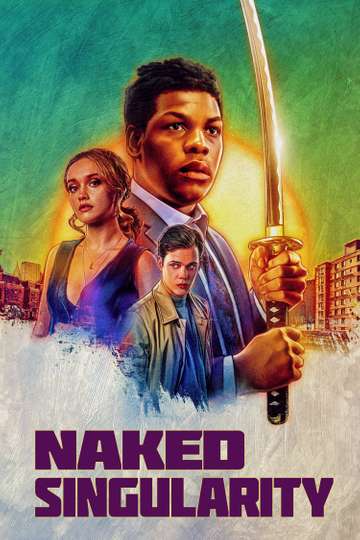
Naked Singularity


